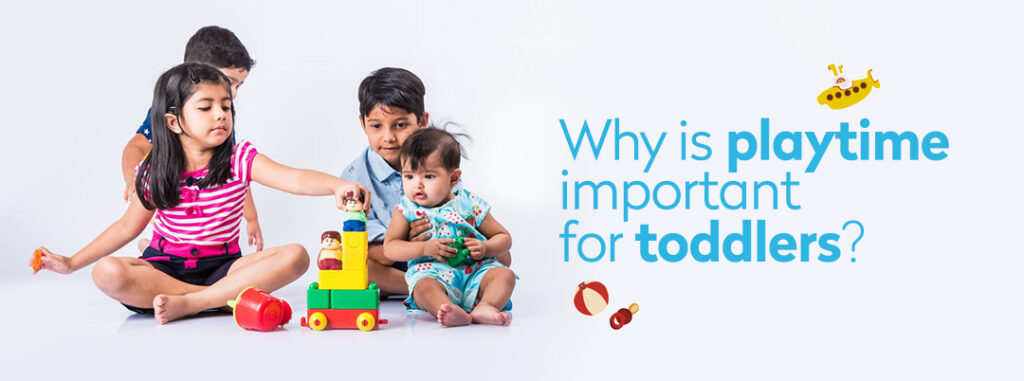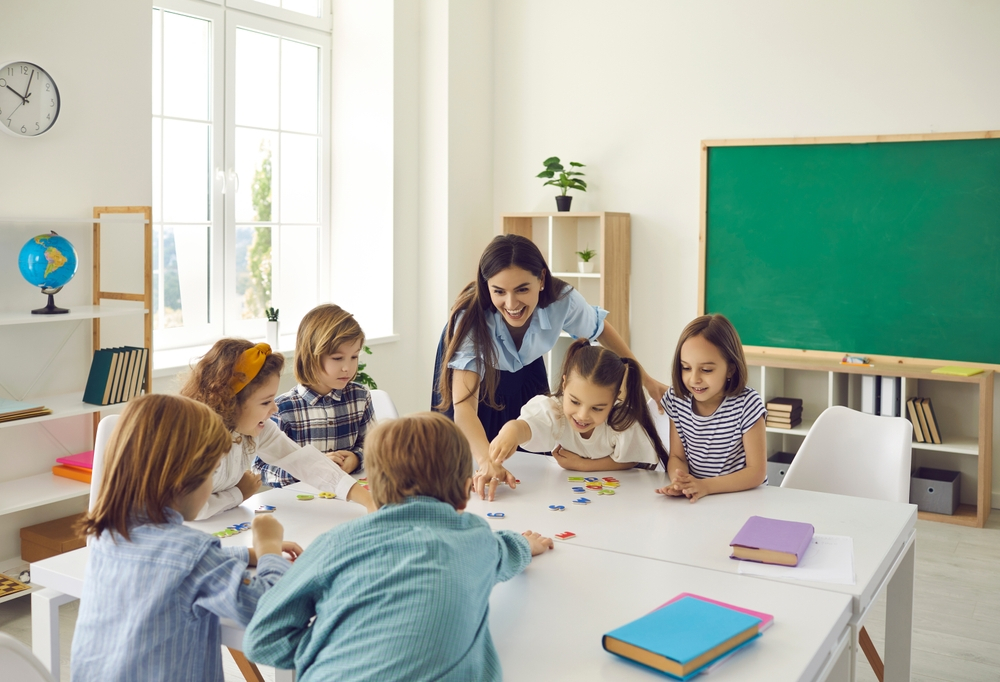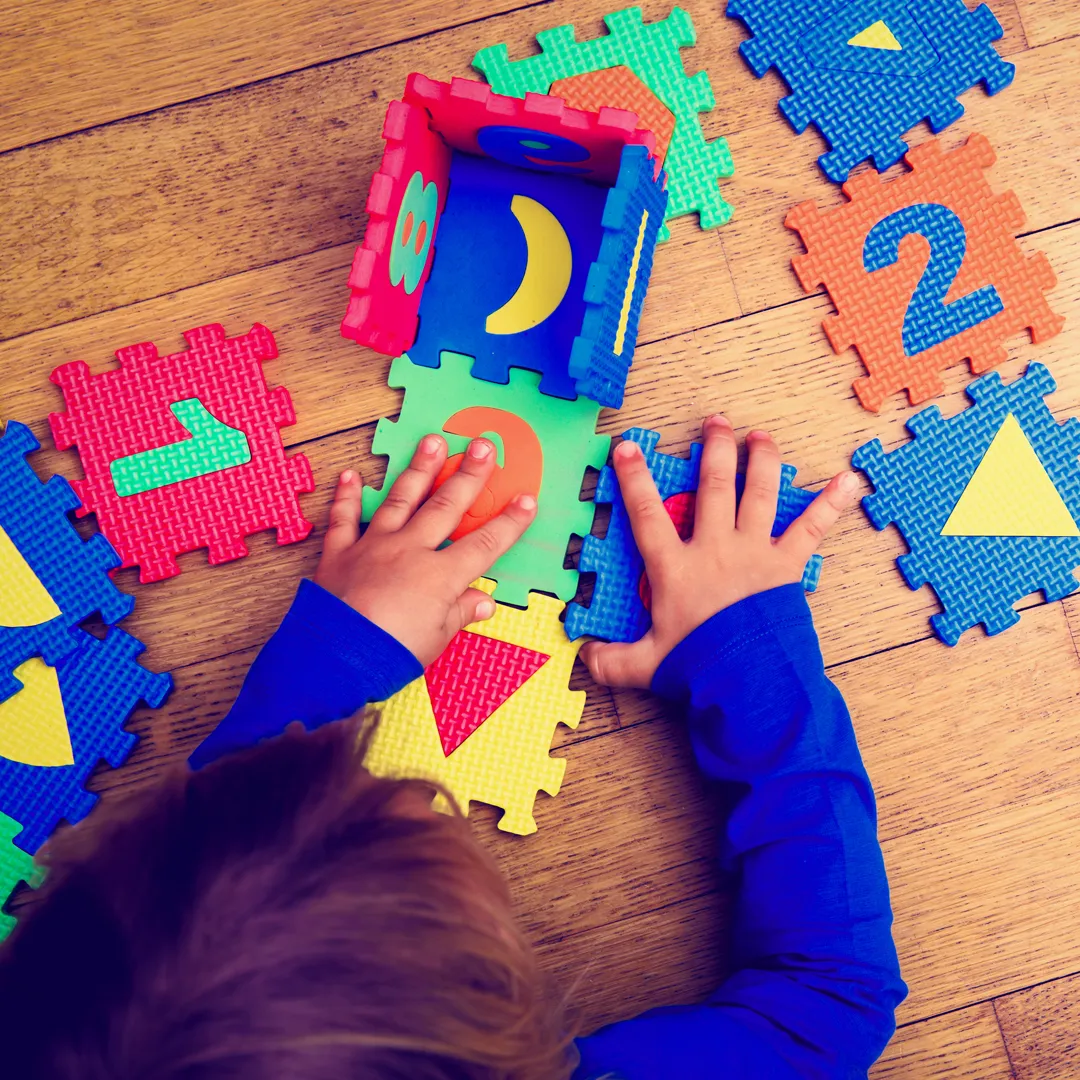In a bid to give their children an advantage for their future, many parents are filling their child’s after-school schedule with music classes, dance classes, art classes, sports and more. While this does have its advantages, it takes away precious playtime. Playing isn’t just about keeping your child entertained for a few hours, it gives your child physical, emotional, social and cognitive benefits.
Stages of Play
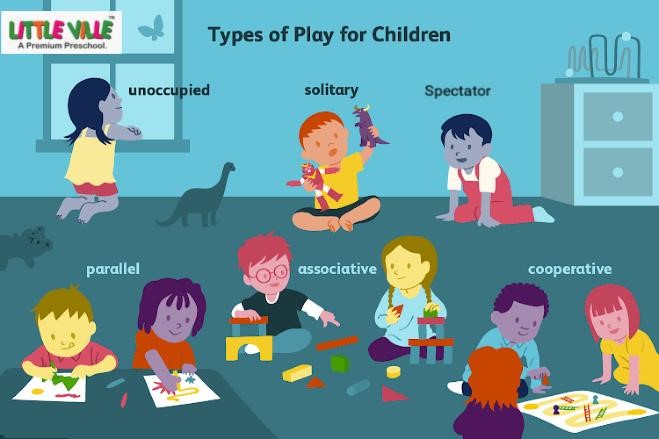
Children play in different ways depending on their age. These can be categorized as:
- Unoccupied Play
- Solitary Play
- Spectator Behavior
- Parallel Play
- Associate Play
- Cooperative Play
The Benefits of Play
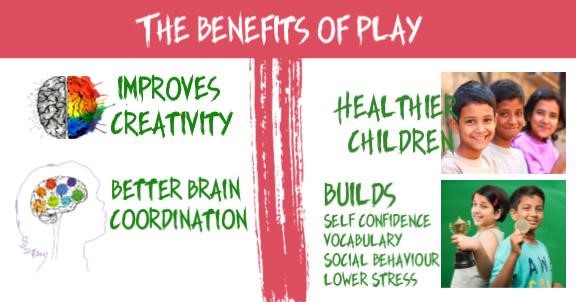
Playtime is about a lot more than just having fun. It plays a crucial role in your child’s physical, social and emotional development. Young infants can learn a lot through play. Here are a few reasons why your child needs to play.
- Improves Creativity
- Better Coordination
- Healthier Children
- Builds Vocabulary
- Lowers Stress
- More Sociable Behavior
- Builds self-confidence
Ideas for Constructive Play
As a parent, you need to give your child time and space to play in a safe space. Pick a space where they can be supervised by you or another adult. Let your child create his own games and see where his creativity takes him. Some ideas for creative play are:
Some ideas for parents to set the groundwork for creative play:
- Make an obstacle course using household objects
- Let your children make a fort out of sticks in the local park
- Encourage children to pretend to play “school”, “Office”. etc.
- Give them paper and crayons and let them explore their artistic side.

